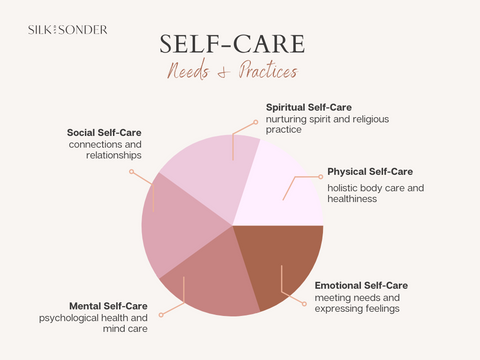Promoting positivity is a big part of the self-care movement. But unfortunately, the lines between toxic positivity and self-love can be blurry. “Just love yourself” is a phrase that gets thrown around a lot. But is it doing more harm than good?
Toxic Positivity is Way Worse Than You Think
If you’ve never heard of the term “toxic positivity,” you’re in good company.
75% of polled participants in a 2020 study by Science of the People said they had never heard of the term before. But after learning more about it, 68% said they’d experienced toxic positivity from someone in the past week.
A good definition of toxic positivity is “the excessive and ineffective overgeneralization of a happy, optimistic state across all situations.”
Not only is toxic positivity sneaky, it’s pervasive.
It can be hard in the moment to recognize that something positive could be toxic or negative. After all, isn’t positivity a good thing? Yes. Positive thinking can be a powerful tool in rewiring our brains and helping us be productive and successful. But like everything in life, we have to know when and how to use it appropriately.
Think about a time when someone shared toxic positivity versus showing empathy and encouraging self-love.
All of us have been in a similar situation. We risked being vulnerable. And we opened up to a friend or family member about something hurtful or painful.
When it came time for their response, they said phrases like “you just have to stay positive” or “just love yourself” or “it could be worse” or “you just need to be thankful for what you have.” These are quippy little phrases. They are easy to spit out. In fact, we’ve probably been on the flip side and said these to someone else before too.
The downside of sugar-coating reality with positivity is that we suppress real emotion. Which can actually delay or deny us the ability to process what’s happening to us and going on around us.
It can have a huge impact on ourselves and our relationships when we either respond this way to someone or have someone respond this way to us. And it’s a cycle that has to be identified and broken in order to properly encourage self-love.
Signs of Toxic Positivity to Look Out For:
- A warped view of reality from always trying to find a positive spin
- Inability to empathize with others and minimize their experiences
- Feeling guilty for negative thoughts or emotions you have
- Desire to “fix it” instead of listening to and validating someone’s emotions
- Avoiding conflict and hard conversations because it goes against positive thinking
- Emotional immaturity and suppressing authentic feelings
- Trauma and relational harm
Self-love is Different. Here’s Why.
Different from oversimplified and overgeneralized positivity, a positive view of self is something we have to cultivate. And sometimes it's a long and hard process to get there. But ultimately, this process of learning to love and care for ourselves produces lasting positive change in our lives and leads to transformative self-discovery.
Let's dive deeper...
When we are aware of our pain and our challenges, and we share those with someone else, we are looking for validation. Rarely are we wanting inspiration or a quick perspective shift that sounds like an Instagram #QotD (quote of the day).
We can get validation from other people when they are kind and empathetic. But (1) when we like and love ourselves, (2) when we have a positive view of our self-worth and our value, (3) and when we have a gentle inner voice of love, we can give ourselves the validation we need.
We can uplift and encourage ourselves (and others) to see hardship as a journey and process. This is a productive and authentic positivity that stems from a healthy love of self.
It’s not simply slapping a positive sticker onto a tough situation by saying, “You’ll be okay!” or “Everything will be fine!”
Instead, it’s acknowledging, “This is hard. I see you are struggling. That is valid.” and “You are capable of overcoming this, and you will come out stronger.”
Healthy Self-Love Is Hard Work (The Opposite of Quick-Fix Positivity)
Self-love is different from toxic positivity because it sees the value in hard or difficult emotions. This is where the phrase “feel your feelings” comes from. The idea is that we need to feel what we’re feeling – even the hard, unwelcome feelings – in order to grow.
This is what emotional self-care (one part of holistic self-care) is all about.

It's cultivating a deeper understanding of our emotions that increases our awareness and emotional intelligence, so that we can take care of ourselves. And it’s not easy to do. In fact, similar to shadow work (a practice we’ve written about on our blog), it’s really hard work to dive into our emotions and understand them.
But when we do, we start to understand parts of ourselves that were hidden. And we can appreciate how tough and resilient we are. We can see a better picture of our life story and how much we’ve changed and developed.
We can practice an authentic (not toxic), positive, and informed view of ourselves that will serve us as we continue to live.
This type of self-love helps us in some of the following ways…
- Helps us establish better interpersonal boundaries
- Helps us know our limits and anticipate our negative triggers
- Helps us show love and care to ourselves without always depending on others
- Helps us show empathy with others and their experiences
We’ve written other blogs on the topic of self-love and how it’s different from toxic positivity. Go check them out:

